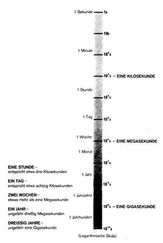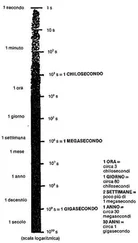Joan Vinge - The Summer Queen
Здесь есть возможность читать онлайн «Joan Vinge - The Summer Queen» весь текст электронной книги совершенно бесплатно (целиком полную версию без сокращений). В некоторых случаях можно слушать аудио, скачать через торрент в формате fb2 и присутствует краткое содержание. Год выпуска: 1991, ISBN: 1991, Издательство: Macmillan, Жанр: Старинная литература, на английском языке. Описание произведения, (предисловие) а так же отзывы посетителей доступны на портале библиотеки ЛибКат.
- Название:The Summer Queen
- Автор:
- Издательство:Macmillan
- Жанр:
- Год:1991
- ISBN:9780765304469
- Рейтинг книги:4 / 5. Голосов: 1
-
Избранное:Добавить в избранное
- Отзывы:
-
Ваша оценка:
- 80
- 1
- 2
- 3
- 4
- 5
The Summer Queen: краткое содержание, описание и аннотация
Предлагаем к чтению аннотацию, описание, краткое содержание или предисловие (зависит от того, что написал сам автор книги «The Summer Queen»). Если вы не нашли необходимую информацию о книге — напишите в комментариях, мы постараемся отыскать её.
The Summer Queen — читать онлайн бесплатно полную книгу (весь текст) целиком
Ниже представлен текст книги, разбитый по страницам. Система сохранения места последней прочитанной страницы, позволяет с удобством читать онлайн бесплатно книгу «The Summer Queen», без необходимости каждый раз заново искать на чём Вы остановились. Поставьте закладку, и сможете в любой момент перейти на страницу, на которой закончили чтение.
Интервал:
Закладка:
“Kullervo,” a voice said. He looked up, and saw Gundhalinu, who had been standing at the Queen’s other side. Gundhalinu moved away from her, coming toward him.
“Welcome back,” Reede said, without a smile. “To the land of the living.”
Gundhalinu looked surprised at him, as if he had said something completely incomprehensible. But then he nodded, not smiling either. “Yes …” he said quietly. “Thank you. Thank you for your part in it.”
Reede shrugged slightly. Seeing Gundhalinu up close at last, he was startled by the drawn weariness of the other man’s face, the way its lines had deepened—the marks that Gundhalinu’s ordeal in the Camps had left on him, that his sudden reprieve had not begun to erase. The stark black and silver uniform, the reflected light of badges and medals, the cruel curved spines of a trefoil among them, only echoed the hard disillusionment in Gundhalinu’s eyes. “Maybe it makes us even,” Reede said.
Gundhalinu smiled then, barely; as if his mouth had almost forgotten how to form the expression.
The Queen turned, hearing their voices behind her. Merovy had disappeared; Reede suspected that his presence was the reason. As the Queen moved toward him, stopping beside Gundhalinu, Reede was struck by the sight of them: They were like mirrors, each reflecting the other’s suffering, their separate ordeals that had only been manifestations of the same ordeal. He realized that he had not even been aware of how the Queen had changed, until this moment; he had been too preoccupied with his own sea-change. He wondered what they saw in his face.
“I didn’t know she could play,” he said, looking away from them toward Ariele, who was still lost in the rapture of her music. He felt a sudden, unexpected yearning fill him, like the sweet, sorrowful gaiety of her song rising into the air.
“Neither did I,” Gundhalinu murmured, a little sadly.
“Neither did I….” The Queen’s voice was an echo of the music’s joy and plangency. Gundhalinu put his arm around her, drawing her close.
She looked up at him and nodded, as if he had spoken; as if there was no real need for words between them anymore. She looked at Reede again; her eyes were wells of memory. Reede stepped aside to let them pass. He watched as they made their way through the dwindling crowd, heading toward the stairway that he had come down. He watched them go out as he had watched them come in, completing the circle.
He turned his back on the empty stairs, granting them their privacy; looking toward the music, and Ariele. He let his thoughts dissolve into the fluid melody, letting Reede Kullervo become lost in the crowd.
Moon led BZ along the quiet hall, up another stairway, through more corridors, hand in hand. He did not question her, following her with a yielding compliance—as if he were still a prisoner. She looked back at him, aching inside. She had thought she was leading him to her bedroom; but they went on, passing its door. BZ glanced at her in silent curiosity, but still asked her no questions.
She had spent every day of the interminable weeks between the tribunal’s arrival and his return working from dawn until far into the night, pressed on all sides by the demands of renegotiating Tiamat’s relationship with the Hegemony and overseeing the city’s recovery from the storm’s disastrous passing. But every night, when she lay in her bed at last, alone, she had imagined him lying beside her: the sound of his breathing, his heartbeat; the warmth of his touch bringing her cold, grief-wracked body back to life.
And yet here, now, when they were alone at last, she knew that it was not what she wanted, or needed. The first giddy rush of joy they had felt at the sight of one another had carried them gracefully, painlessly through the party’s public eye. But here in these empty halls, that bright, thoughtless moment of pleasure was fading, letting memory overtake her, letting in ghosts and shadows. And looking up at his shadowed, weary face, she knew that it was not what he needed, either, to be hurried into intimacy.
And so she led him on through the halls and up the final spiral stair, leading him to her private room at the palace’s, and the city’s, peak. The night sky opened out around them, glowing with the fire of countless stars. The cool, blue-silver face of Tiamat’s single large moon was a luminous mystery rising over the sea.
She heard BZ draw a breath of astonishment, as he saw what lay before and below him. “I had no idea this existed …” he whispered, and she did not know whether he meant this secret room, or a view of such beauty. She rested her head against his shoulder as they stood together, looking out; holding one another but perfectly still, forgetting their own existence.
Something broke the water’s surface, far out on the placid dark-bright mirror of the sea: one silhouette and then another and another, stitching tracks of blackness across its shimmering surface; a reminder of all that lay hidden beneath its illusion of calm. “Are those mers?” he asked.
“I think so,” she said softly. “I can’t be sure, at this distance.”
He sighed. “I thought I’d never live to see this world again,” he said. “I thought I’d never see your face—” He looked away from the ocean, into her eyes; touched her face tentatively, with a work-scarred hand. “They tried to kill me …” he murmured, at last.
“Who?” She would have held his gaze, but he looked out at the sea again.
“The same ones who wanted to kill the mers.” His face hardened like a fist. “The same ones who were congratulating me on my return, and licking my boots downstairs tonight, probably. They didn’t have the influence—or the courage—to kill me outright. So they sent me to that place… .”He broke off. “And hoped time would take care of things. Except that you saved my life, again.” His expression eased, and he kissed her hair, a tender, passionless kiss.
She did not answer, did not move, her body insensate and unresponsive: remembering how thin a membrane lay between life and death, remembering all the things that could not be changed, ever.
“Moon …” He closed her in his arms in sudden compassion. “I’m sorry. I’m so sorry… .” And in his broken voice she heard the memory of sounds torn from her throat by her own mourning.
She shook her head, feeling her flushed cheek brush the cool, impersonal cloth of his uniform jacket; feeling the armor of hard-edged medals he wore press into her back, her neck, as he held her. Feeling no comfort. “Mother of Us All,” she whispered, gazing out at the sea, “I would rather have died than have had my heart torn out of me.” She thought of Arienrhod then—of her bones rolled eternally in the dark depths of the sea—with pity and terror.
He had no answer, this time; only went on holding her, until she began to feel the warmth of his body penetrate her skin like a soothing balm. “Look,” he said at last. “Those are mers. You can see it clearly now.” His arms still held her tightly; his voice insisted that she look.
She raised her head, to see them, a whole colony rejoicing in the night at the interface between worlds. Their lives were complete again, their reason for existence secure again; although she saw in the hidden forms of their abandoned motion, their courting dance, that in their timeless world, existence itself could be reason enough. They had far more in common with the sibyl mind than they had with the human servants who shared their spiritual bondage to it. She watched them appear and disappear, leaving the subtle patterns of their passing imprinted on her mind as they winked in and out of sight on the star-filled surface of the water. “I envy them …” she whispered. “They live without regret.”
Читать дальшеИнтервал:
Закладка:
Похожие книги на «The Summer Queen»
Представляем Вашему вниманию похожие книги на «The Summer Queen» списком для выбора. Мы отобрали схожую по названию и смыслу литературу в надежде предоставить читателям больше вариантов отыскать новые, интересные, ещё непрочитанные произведения.
Обсуждение, отзывы о книге «The Summer Queen» и просто собственные мнения читателей. Оставьте ваши комментарии, напишите, что Вы думаете о произведении, его смысле или главных героях. Укажите что конкретно понравилось, а что нет, и почему Вы так считаете.












